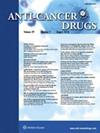Differential functionality of fluoropyrimidine nucleosides for safe cancer therapy.
Abstract
Chemotherapies are standard care for most cancer types. Pyrimidine analogs including 5-fluorouracil, cytosine arabinoside, 5-azacytidine, and gemcitabine are effective drugs that are utilized as part of a number of anticancer regimens. However, their lack of cell-specificity results in severe side effects. Therefore, there is a capacity to improve the efficacy of such therapies, while decreasing unwanted side effects. Here, we report that while 5-fluorocytosine is not chemotherapeutic in itself, incorporated into a ribonucleoside and more importantly into an RNA oligonucleotide, it induces cytotoxic effects on cancer cells in vitro . Interestingly, these effects are rescued by both uridine and thymidine. Similarly, in-vitro 2'-deoxy-5-fluorocytidine inhibits the growth of tumor cells but has the advantage of being less toxic to human primary cells compared with 5-fluorocytidine, suggesting that the deoxyribonucleoside could exhibit less side-effects in vivo . Thus, this work indicates that the potency of 5-fluorocytidine and 2'-deoxy-5-fluorocytidine should be further explored. In particular, oligonucleotides incorporating 5-fluorocytosine could be novel chemotherapeutic drugs that could be formulated in cancer-specific particles for safe and efficacious cancer treatments.





